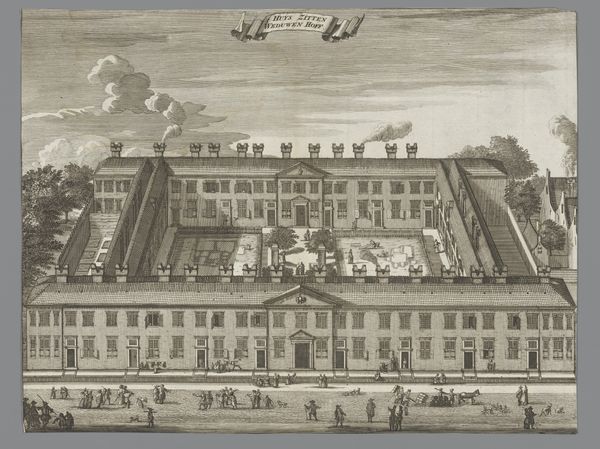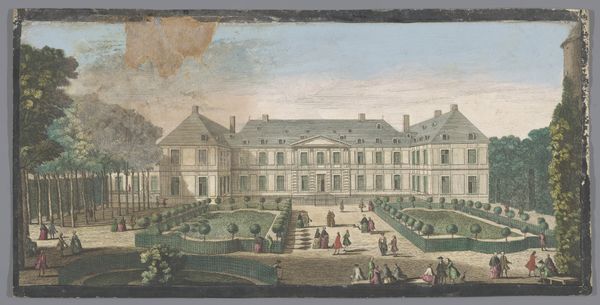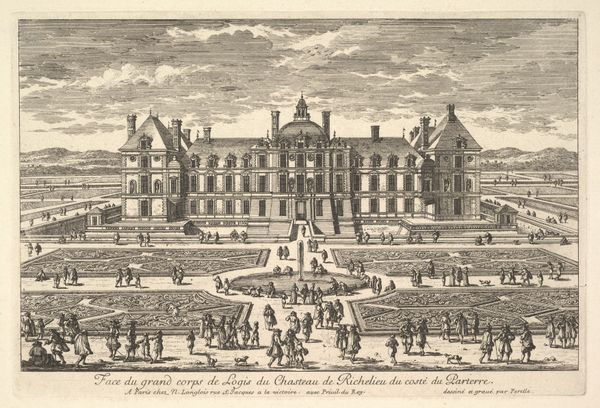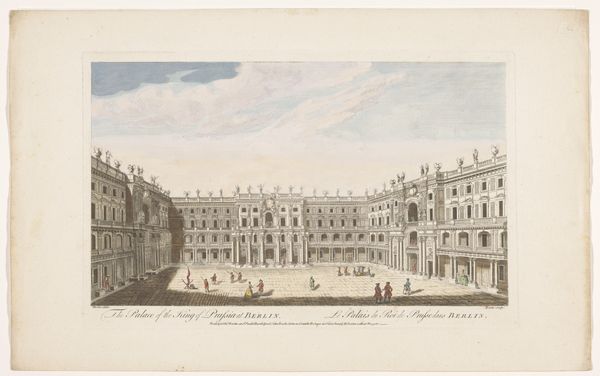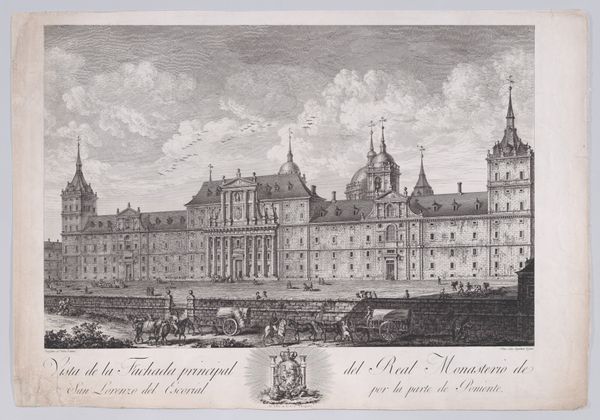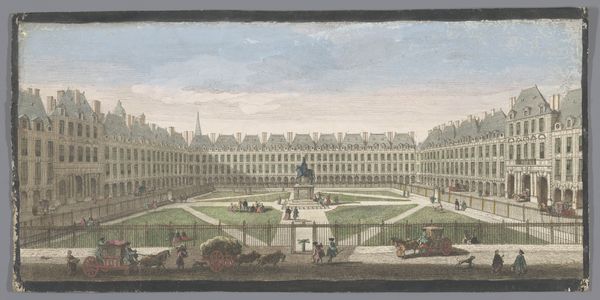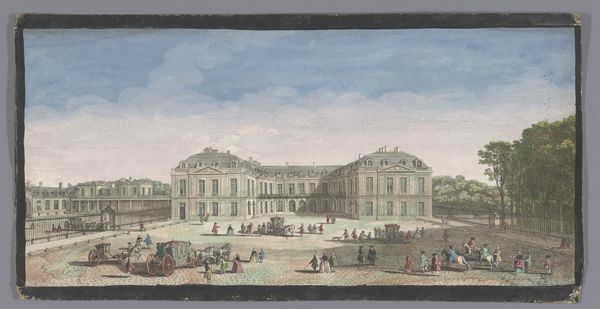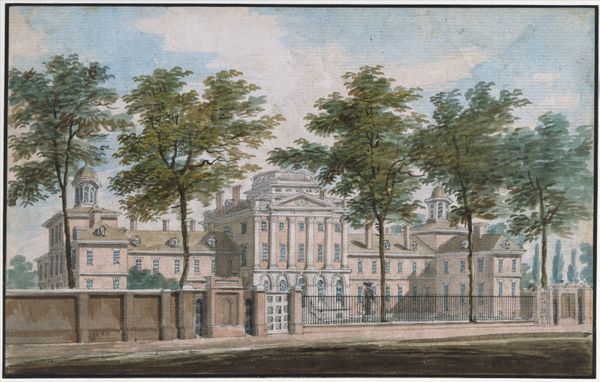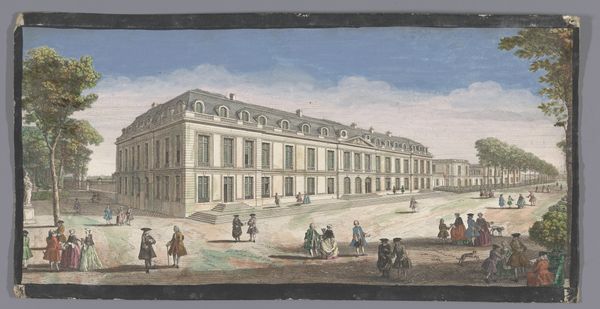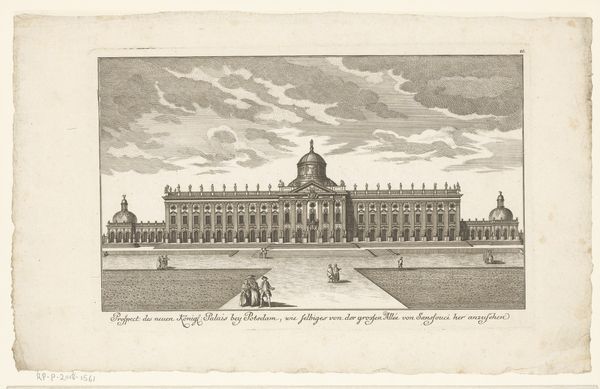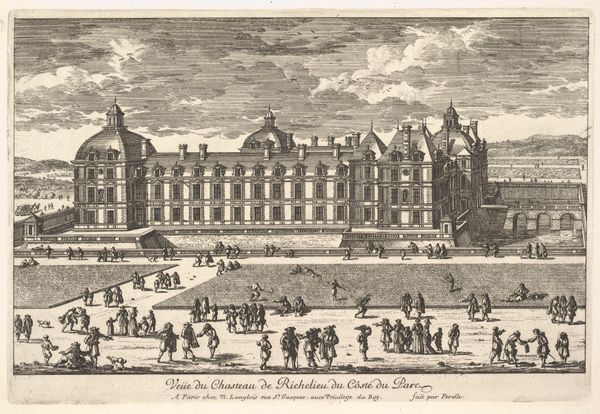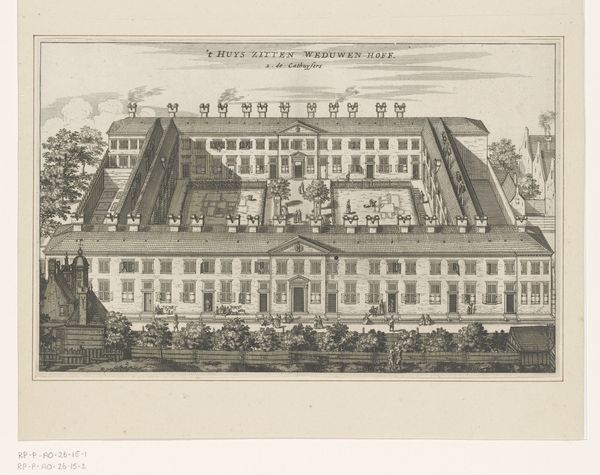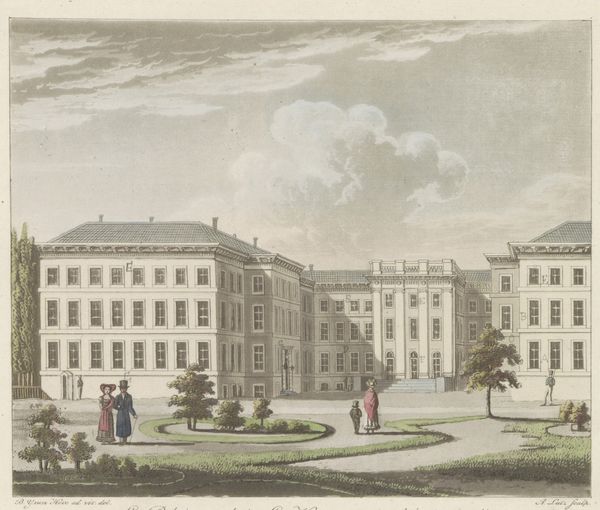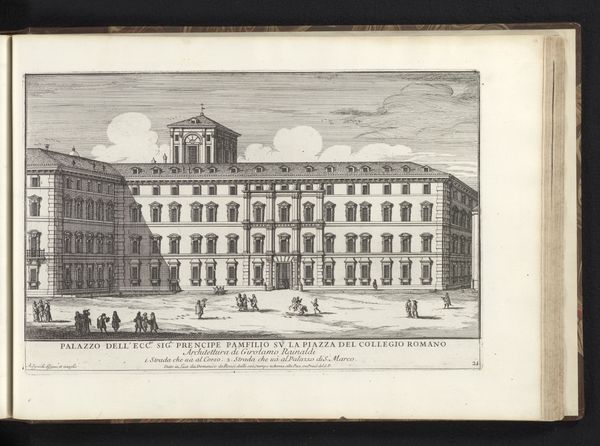
painting, watercolor
#
water colours
#
painting
#
landscape
#
watercolor
#
coloured pencil
#
cityscape
Dimensions: height 240 mm, width 493 mm
Copyright: Rijks Museum: Open Domain
Editor: Here we have an 18th-century watercolor painting, "Gezicht op het Hôpital de la Salpêtrière te Parijs" by an anonymous artist. The scene feels so orderly and composed, almost…clinical, despite being a cityscape. What stories do you think this piece is trying to tell? Curator: This cityscape presents us with an interesting paradox. On the surface, it appears to be a standard topographical view, but considering Salpêtrière’s history, we must consider it beyond its architectural representation. Salpêtrière was more than just a hospital; it was an asylum where women, particularly those deemed ‘hysterical,’ were confined and studied. How does knowing this affect your interpretation? Editor: Wow, that definitely shifts things. I hadn't considered the human element, the people who were *inside* the building. It seems so calm on the surface, but knowing that it housed women who were essentially imprisoned there… it’s disturbing. Does the painting, perhaps unintentionally, serve as a symbol of patriarchal control? Curator: Precisely! Consider the male gaze inherent in this rendering. Anonymous depicts Salpêtrière from a distant, detached perspective, minimizing the lived experiences of the women inside. The composition, the architectural precision, and the absence of emotional expression create a sense of clinical observation that mirrors the medical establishment’s objectification of women during that time. The image becomes a document not only of a building but also of a power dynamic. What is left unsaid is so loud. Editor: It’s almost as if the beauty and order of the painting mask the suffering within the hospital walls. It's definitely changed how I see these kinds of landscapes. It's about much more than just the pretty architecture. Curator: Exactly. Context is key. By understanding the socio-political backdrop of the time, we can dissect the narratives woven within and around the visual representation. Editor: Thank you for shining light on the narratives within the narratives!
Comments
No comments
Be the first to comment and join the conversation on the ultimate creative platform.
